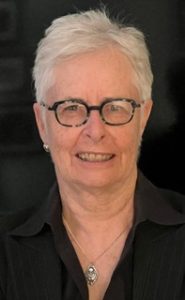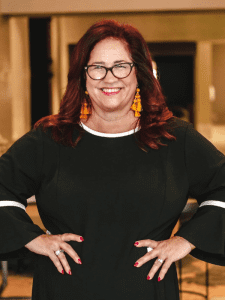Reviews for Spiritual Healing from Sexual Violence: An Intersectional Guide
“Spiritual Healing from Sexual Violence approaches healing from sexual violence from an intersectional perspective that brings forth the voices of people with BOTH lived experience and professional training. It is also an act of antiracism in that contributing authors are from BIPOC communities. Additionally, it integrates religion and spirituality and helps the reader grapple with the complexities of our intersectional social identities and how those inform our experiences and approaches to intervention with and support of survivors.
The depth of lived experience and professional background of the authors make Spiritual Healing from Sexual Violence particularly appealing to me. In my profession, I would find it incredibly valuable to be able to read the experiences of such a diverse group of contributors to enhance my own knowledge and understanding of working with survivors (which I do as part of my work as a psychologist).”
– Tammy Hatfield, PhD, professor in the School of Social and Behavioral Sciences at the University of the Cumberlands.
⭐ ⭐ ⭐ ⭐ ⭐
“Spiritual Healing from Sexual Violence encompasses spirituality as both a destructive and healing means. For many, this would make the book more appealing and broad-reaching. This book, I believe, would resonate with some survivors for whom more traditional talk therapy has not proved as effective.”
– Miriam Duignan, Head of Communication at the Wijngaards Institute
⭐ ⭐ ⭐ ⭐ ⭐
“What’s fascinating for readers about using Spiritual Healing from Sexual Violence is the intersectional, interdisciplinary ways of thinking. There is so much about which readers can become more curious when the various themes touch their humanity from different perspectives. The themes chosen for each chapter in this proposal are engaging. Each chapter turns the prism of understanding.”
– Marge Kloos, Pastoral Care Professor Emeritus, University of Mount St. Joseph
⭐ ⭐ ⭐ ⭐ ⭐
“Spiritual Healing from Sexual Violence is an ambitious effort to offer spiritual resources to survivors of sexual violence, particularly those who struggle with a burdensome faith tradition which too often has been counterproductive to their healing.
This is an anthology written by survivors, academics, and survivor/academics and as such it speaks to a wide range of readers. While most of the articles are accessible to a general audience, some are intended for other academics. Both have a place in our ongoing conversation about how we offer spiritual resources to address post-victimization.
The exploration of various cultural and religious frameworks is critical to discern potential sources for healing practices and to challenge patriarchal norms found in these sources which undercut healing. Mary Sue Barnett theologizes in a Christian context reminding us of the Divine Feminine and the image of Christa (the crucified woman). Debra Meyers offers a critique of patriarchal Christian traditions.
To explicitly incorporate autobiography with scholarly research in the literature can be a tricky path. The task is to discuss how individual experience informs wider understanding and how wider understanding (research and scholarship) informs personal experience. Annette Williams does this very well. Quanita Roberson also uses her personal experience to speak effectively to our wider understanding.
Rachelle Elizabeth and others offer the value of cultural practices and belief systems to address the particularity of survivors’ needs. She affirms the interfaith dialogue that can emerge when “we share a human experience that connects us.” Our task here is to honor and respect multiple cultural practices for healing but not to acquire or appropriate them if they are not ours.
Finally, Abby King-Kaiser (power of prayer and liturgy) and Lauren Sawyer (justice-making) remind us of the importance of community as the foundation of healing. Community makes the space within which individuals can experience justice and support.
This is the bottom line that runs throughout this anthology. For people to find healing from having been sexually violated, they need to be seen and heard, believed and supported in solidarity with individuals, family, and community. The challenge is how we can do this for ourselves and each other, in whatever faith or cultural context.
Judith Herman (Trauma and Recovery) concludes that the accomplishment of recovery and healing is this: “The survivor must be ready to relinquish the ‘specialness’ of her identity. Only at this point can she contemplate her story as one among many and envision her particular tragedy within the embrace of the human condition. . . . It means having a feeling of familiarity, of being known, of communion. It means taking part in the customary, the commonplace, the ordinary, and the every day. . . . The survivor who has achieved commonality with others can rest from her labors. Her recovery is accomplished; all that remains before her is her life.”
Spiritual Healing from Sexual Violence is a valuable contribution to this effort.”
 – Rev. Dr. Marie M. Fortune
– Rev. Dr. Marie M. Fortune
Founder of FaithTrust Institute, she is a pastor, author, educator and practicing ethicist and theologian.
Marie M. Fortune grew up in North Carolina where she received her undergraduate degree from Duke University. She received her seminary training at Yale Divinity School and was ordained a minister in the United Church of Christ in 1976. After serving in a local parish, she founded the Center for the Prevention of Sexual and Domestic Violence, now known as FaithTrust Institute, in 1977 where she served as Executive Director until 1999 and served as Founder and Senior Analyst until her retirement in 2017. FaithTrust Institute is a national, multifaith, multicultural organization providing religious communities and advocates with training, consultation, and educational materials to address the faith aspects of abuse.
She was Editor of The Journal of Religion and Abuse from 2000–2008 and served on the National Advisory Council on Violence Against Women for the U.S. Department of Justice (1995–2000) and the Defense Task Force on Domestic Violence for the U.S. Department of Defense (2000–2003).
“As an intersectional feminist of color who has spent over 40 years of her career as a social worker, advocating for gender justice and working along survivors to address the systemic, familiar and individual impact of sexual violence on the psyche/soul of survivors, I am most impressed with the depth and breadth of the diverse contributions made in this most welcome guide for addressing spiritual healing from sexual violence. Truly energized by the unapologetic truth shared by both survivors and professionals as they unpack the trauma caused first by the violence and secondly by the denial and accusations made by family members and faith leaders. The intersectionality of multiple oppressive spaces is brilliantly highlighted in the courageous stories shared by those who have been historically marginalized and underserved. Their experiences are often not brought to light or at the very best tokenized. That is not the case in the volume, on the contrary their experience is the heart of the book.I highly encourage, advocates, faith leaders, therapists and others working to mitigate trauma to take a deep dive into the essays in this book, listen to the voice of those often not heard and explore the suggestions offered for addressing policy and practice from an intersectional and multidisciplinary lens. You will be touched and energized personally and professionally. I know I have.”

– Marta Miranda-Straub
Marta Miranda-Straub, pronouns, she, her, ella, is an Afro-Caribbean Latinx woman who has spent her life working towards building equity, inclusion and creating sustainable systems change. Her leadership, scholarship and activism has focused on advancing social and economic justice for marginalized communities. She lives. works and writes at the intersection of identities, place, ethnicity, race, gender and sexualities, applying an intersectional feminist lens to all that she does. Marta is the former social services ( DCBS) commissioner for the state of Kentucky. She has over 45 years of experience in organizational and clinical social work practice during which she has held multiple roles, such as tenured professor, social researcher, executive leader, fund development professional, psychotherapist, entrepreneur, community organizer, advocate, activist, coach, trainer, facilitator and public speaker. She is the past President/CEO of The Center for Women and Families, a 6 million dollar non-profit, serving survivors of intimate partner violence, sexual assault and their children in Kentuckiana. Marta was inducted into the Affrilachian poets by KY Poet Laureate Frank X Walker in 2009, she is a published scholar, poet and storyteller. Her bilingual memoir, Cradled by Skeletons – A Life in Poems and Essays, was published in Winter 2019 by Shadelandhouse Modern Press. Her illustrated and written in both English and Spanish children’s book, Lullaby for Maddie, was released on November 16, 2022. Her poem The Reckoning was accepted by Sarabande Books and included in the Anthology of Louisville poets, Once a City Said published in Spring 2023.

